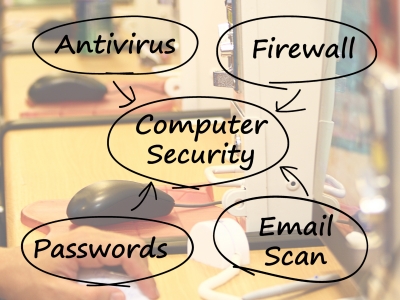What is a Network Administrator?
Virtually every business that has an IT department has a network administrator. Despite the common nature of this position, few people truly understand what such an individual does. By understanding what a network administrator does, you can communicate more effectively with your own administrator and also make sure that you know which qualities to look for if you are ever in the position where you need to find somebody to fill this role.

The Position at a Glance
A person in this position is responsible for performing support services for a variety of different information systems related to an organization. This may include the company's local area network, or LAN, a wide area network, or WAN, a company's internal intranet, or another Internet or network system. Individuals in this position can also perform general IT duties and systems repairs, but their specialty is in network operations. If you are having issues with your Internet or intranet, if you need to set up a new private network for specific individuals within your organization, or if you are looking to streamline your office's network activities, your network administrator is the person you should speak to.
Typical Education and Training Needed
Not all companies require a network administrator to have a college degree, but most see a degree in computer sciences or a similar IT field as necessary. During college, individuals who hope to find themselves in this position typically take elective courses that specifically focus on network operations and data communications systems. A person who works in this position has similar skills to several other IT professionals, specifically in information systems and software support. In some companies where resources are slim, you might find your IT administrator performing this and other duties. Given the importance of a reliable network, however, it is often best to have somebody who can do this job full time.
Typical Job Functions and Challenges
Some of the typical tasks assigned to a person in this position include establishing network specifications based on an organization's need, assigning security protocols, and monitoring the network for any unusual activities by other users. This individual is usually responsible for assigning access levels and determining security requirements for different areas of a network. Troubleshooting is a big part of this job, as the individual will need to walk other users through any major problems and identify systems issues before they decrease productivity. The network administrator will need to regularly perform network maintenance, be able to provide remote support, and train others on the use of the network.
A network administrator is an essential part of most modern businesses. Because few items are stored in local drives anymore and most office data is kept on a local network or secure intranet, it is essential to make sure that you have somebody capable of managing the flow of this data. In larger organizations, this position might serve as the head of an entire network team, assigning tasks and providing supervision in addition to its tech support duties.
Image courtesy of Stuart Miles at FreeDigitalPhotos.net